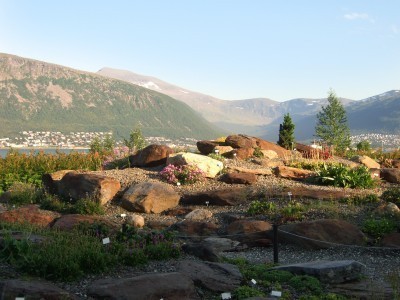






Growing alpine plants is a great way to fill those difficult areas in the landscape with unusual foliage and interesting blooms. Alpine garden plants are native to in mountainous regions of New Zealand and other high altitude areas of the Northern Hemisphere. These plants are adaptable to various areas of the U.S. where other garden plants cannot successfully grow, such as rock gardens.
Alpine plant info says alpine plant adaptations make them the perfect specimen for areas where temperatures rapidly change from cold to sizzling hot, where strong winds disrupt other plant life and where soil is poor and cannot easily be amended. Most alpine garden plants need moist soil to flourish but tolerate periods of drought once established. When established, these plants have a deep, supportive root system.
Alpine plant adaptations allow gardeners with rocky soil to add color and form in the landscape. Accustomed to life between the tree line and the snow line, where volcanic activity is the norm, alpine garden plants have adapted to harsh conditions. As a result, they’re often low to the ground, many with wiry stems and tough enough to handle drought, freezing temps and ice.
If this describes your garden conditions, think of adding alpine plants in your landscape. Many varieties are available: flowers, shrubs, grasses and trees. Create an entire display by growing alpine plants in a rocky or wooded area. Around 200 different plants of this type are found in the above-mentioned areas, according to alpine plant info. Alpine plants are pollinated by flies, beetles and moths.
Alpine plant info indicates that alpine garden plants require little care once established in the landscape. This info about alpine plants says their ground-hugging tendency is a protective mechanism, as is their small size and deep root system.
Alpine plant info describes flowering plants with spring and summer blooms. Mountain daisies, buttercups, alpine phacelia, and terrestrial orchids are excellent alpine plants for tough growing areas. Alpine eyebright, Euphrasia officinalis, blooms with colorful flowers from July to September. Trailing along the ground, grow this with other alpine plants such as alpine phacelia and native terrestrial alpine orchids for a showy garden display.
Other alpine garden plants include edelweiss, some hebes and an interesting specimen called vegetable sheep. Raoulia rubra is a type of cushion plant that grows as an alpine plant adaptation that holds water like a sponge.
Following is a sampling of some commonly known alpine plants to consider growing in the challenging garden area:
Copyright © www.100flowers.win Botanic Garden All Rights Reserved